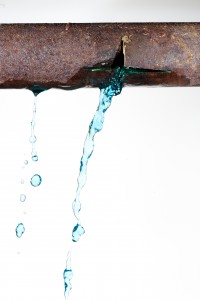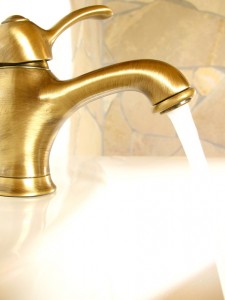 Are you at the mercy of leaking pipes in your house? One of the most likely causes of consistent pipe leaks is corrosion.
Are you at the mercy of leaking pipes in your house? One of the most likely causes of consistent pipe leaks is corrosion.
At this point you might say, “But I have copper pipes. Copper doesn’t corrode.”
But that’s not actually true. Copper is corrosion resistant, not corrosion proof. It won’t corrode under most common circumstances (metal and oxygen in the presence of water) like steel and iron will. But exposure to certain chemicals and compounds sometimes found in water—especially water coming from a well—will create specific types of corrosion in copper.

